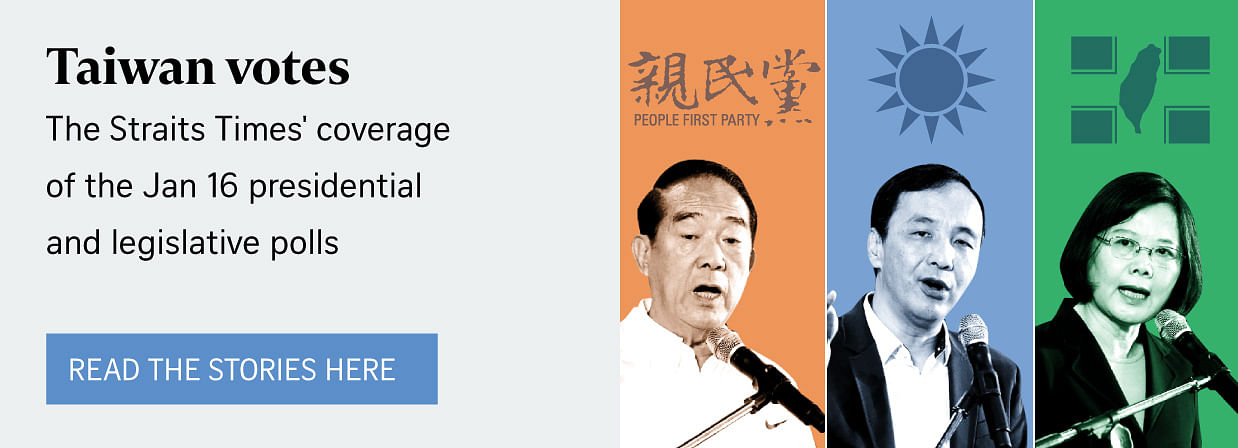Many are predicting a historic change in Taiwan's political palette this Saturday.
Since direct legislative elections were introduced in 1992, the pan-blue coalition led by the Kuomintang (KMT) has always held a majority. It now controls 64 - or about 57 per cent - of 113 legislative seats.
But polls have suggested that the blue will ebb this time, possibly making way for the green even in intensely cobalt territory.
A total of 546 candidates from 18 parties are vying for the 113 seats up for grabs, of which 73 are elected under a first-past-the-post system in single-member constituencies. Thirty-four are at-large seats elected under a supplementary system on a second ballot based on nationwide votes. The six remaining seats are in two three-member wards and elected by aboriginal voters.
The reasons for the likely change are myriad, both islandwide and local, including the candidates' quality. But on a broad level, it is driven by anger over a sluggish economy, inequality and an education system laden with stress and rote learning.

A new survey by CommonWealth magazine shows that the Taiwanese have identified the three biggest threats facing their society as: a weak economy, political infighting and a growing rich-poor divide.
This means that the incumbent KMT, after eight years of having Mr Ma Ying-jeou as president and 23 years of controlling the Parliament, is likely to suffer a drubbing.
If the Democratic Progressive Party (DPP) wins in both races, it will be firmly in control of the government.
The wider the victory margin, the more DPP chairman Tsai Ing-wen's hand will be strengthened, whether in crafting economic policies or negotiating with China. That she will become Taiwan's next president is all but a foregone conclusion.
But the legislative race is not as assured. The DPP could be stymied by the emergence of smaller green parties, supported by voters who are fed up with the political wrangling between the two main parties.




